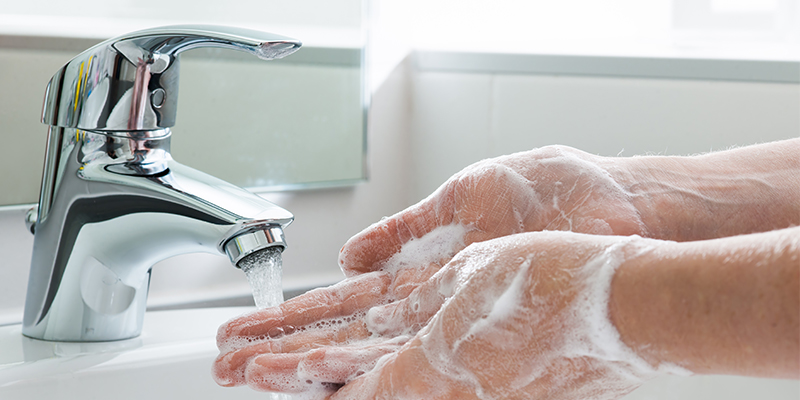More options for taking care of yourself
At Gibbet Hill, the safety and wellbeing of our staff and students is our highest priority. We are all no doubt concerned about coronavirus and we want to advise that we are following PHE guidelines and the university guidelines to take care of ourselves.
This is quite a stressful time for many who may be worried about underlying health problems and the health and wellbeing of family members and travel plans.
In addition to the advice and guidance provided by PHE we can do some simple things to help take care of our immune systems and our general health and wellbeing. Below we have included some tips from one of our Professors in Public Health, Sarah Stewart-Brown, on how we can help ourselves.
Sarah Stewart-Brown shares with us some of her tips
"We are all going to come in contact with coronavirus over the next few months. Taking the precautions recommended by Public Health England like hand washing and being very careful with coughs and sneezes will slow the spread and reduce the number of times we come in contact but it is no longer believed that this can prevent the spread altogether. Whether contact with the virus results in illness and how severe the illness is depends on our personal immune response and that is something over which we have some control.
Stress reduces the efficacy of the immune response. Panic even more so.
Those of you that have developed ways of supporting your wellbeing need to use these more now. For those that have not started to do so now is a good time to start."
Things that can help that you can do for yourself
Regulating your nervous system for a period of time each day with things that work for you
These might be:
- Listening to or making music
- Walking in green spaces or near water
- Looking at art or creating it
- Meditating or doing mindfulness practice
- Doing mindful movement like Yoga or Tai Chi
- Reading a good book or watching a good film
- Laughing
- Breathing deeply
- Taking a long scented bath
- Getting enough sleep (More than 7 hrs)
If you have to self-isolate it is especially important that you do these things
And it is also important that you stay closely in touch with others – the University, friends and family on social media. Find yourself one or two buddies who will check in with you often.
Social support and empathetic concern from others support the immune system and the social distancing and isolation we are being asked to practice cuts across this. Social media can bridge that gap.
In the meanwhile offering to teach your peers any strategies you have learnt to enhance your wellbeing and meeting to practice these are all a good idea.
Things to avoid
- Overworking (many deadlines are going to be missed over the next few months because of this virus. Do not add to the spread of the virus by trying to address unrealistic deadlines. Do your job from 9-5 or whatever hours you are contracted to work and go home)
- Alcohol
- Tobacco
- Junk food
- Letting yourself get into a negative cycle of rumination and panic, or of obsessive compulsive behaviour. These things happen to very normal people under stressful conditions
Further information
To find out more and to see the latest updates visit the University's coronavirus guidance webpages.
Coronavirus advice at Warwick

Find out how to wash your hands properly here.
Useful links
NHS information on Coronavirus
FAQs from Public Health England
NHS 111 - national assessment helpline for potential COVID-19 cases
